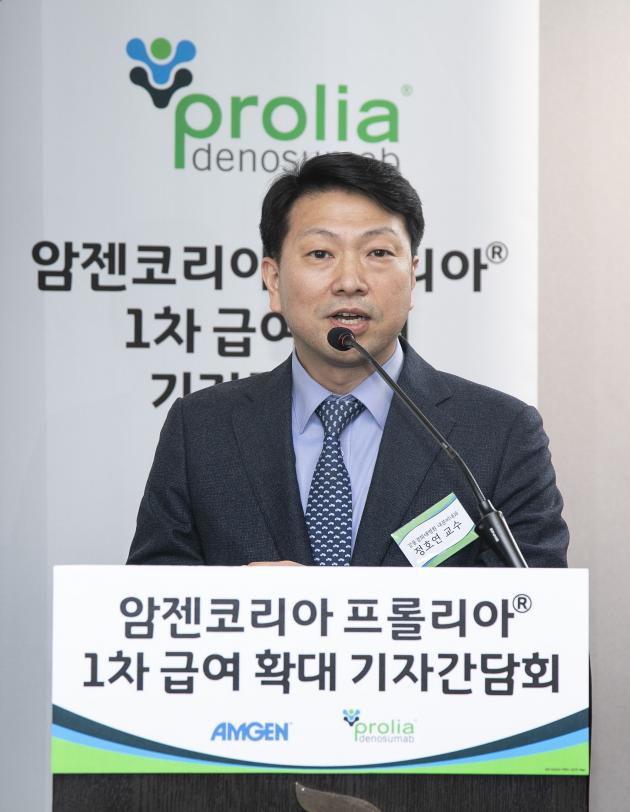Amgen Korea said Friday Prolia (ingredient: denosumab), a biological agent for osteoporosis, has received additional insurance benefits.

Prolia is a monoclonal antibody injection that targets Receptor Activator of Nuclear factor Kappa-B Ligand (RANKL) proteins in osteoporosis patients.
Under the new insurance plan, Prolia’s reimbursement will be given twice a year to patients who have a T-score less than minus 2.5. Also, insurance benefits will be allowed six times for three years for patients that have received osteoporotic fracture diagnosis in radiography.
If the patient’s T-score does not improve from less than minus 2.5 even after the treatment in a follow-up examination, he or she will continue to receive reimbursement for their continued treatment.
The additional insurance benefits come after the drug gained approval as the first-line treatment for postmenopausal women with osteoporosis and to increase bone density in men with the disease in 2017. During that time, however, the insurance coverage only applied to the drug as a second-line treatment.
“Prolia, which has been recommended and prescribed as the first-line treatment in various countries, including the U.S. and Australia, has proven its efficacy and safety,” Noh Sang-kyung, general manager of Amgen Korea, said. “We are pleased that Prolia received expanded insurance benefits in Korea.”
Medical professionals also showed high expectations with increased insurance benefits.
Professor Chung Ho-yeon of Kyunghee University Hospital and President of the Korean Society for Bone and Mineral Research pointed out that the increased insurance benefits for Prolia can resolve some of the social and economic burdens caused by low diagnosis and treatment rate of osteoporosis in Korea.
“Osteoporosis, a chronic disease, continues to increase in the elderly, especially in those aged 50 and over,” Cho said. “The 2007 to 2011 survey shows that the social cost of osteoporosis fractures exceeded 1 trillion won ($ 880 million).”
Osteoporotic fractures also have a high recurrence rate and may lead to death if the fracture occurs at major sites, Cho added.
According to Cho, only 40 percent of fractures are medically treated although aggressive medication is necessary.
"In Korea, four out of 10 patients discontinue their treatment because the medication is inconvenient and expensive," he said. "Adding on to such problems, there is relatively little governmental support for osteoporosis than other diseases such as hypertension and diabetes.”
However, the extended reimbursement for Prolia will help more patients continue treatment, Cho added.

